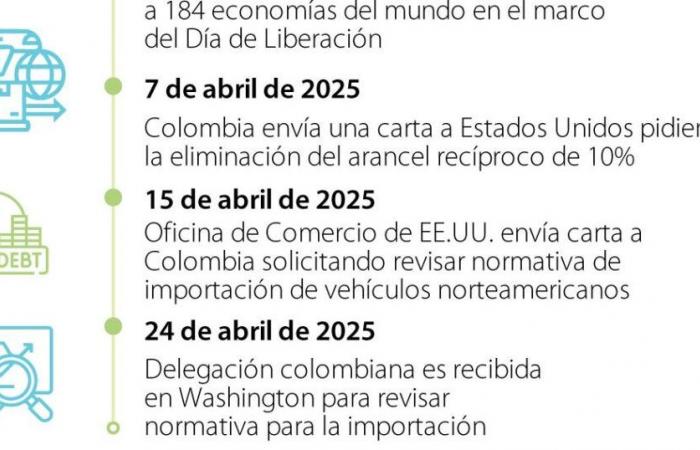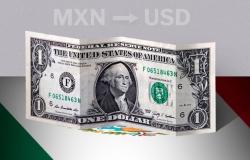After the first stage of negotiations between Colombia and the United States, which occurred in Washington by the regulations that would stop vehicle imports And the imposition of a 10%reciprocal tariff, a second stage was held in Bogotá between April 29 and May 1.
In the meetings that were held in the capital, the Office of the United States Commercial Representative, known as USTR, set its position that until the regulations required to be repealed A double certification in the importation of US vehicles, the negotiation of 10% of tariffs will not be advanced.
“At the moment the security regulations will not enter into force. On the terms, the deadlines and in general the road map, It will be the Ministry of Transportation in charge of publicizing the guidelines on this regulation, ”said the minister in charge, Cielo Rusinque.
The commercial relationship between the US and Colombia lives a tense calm, which increased on April 15 when the US Commercial Office sent a letter to the Mincomercio to review the vehicle safety regulations. The letter signed by the representative of that office, Jamieson Greer, said that if its entry was not stopped, the sending of vehicles was stopped from the US.
Nine days later, Cielo Rusinque, Minister (E) of Commerce, met in Washington with Greer and Daniel Watson, another of the representatives of the trade office to review the imports of American vehicles and, incidentally, renegotiate the 10%tariff. Rusinque described the meeting as positive and the second phase of these conversations was agreed, which took place between April 29 and 30 at the Andi headquarters in Bogotá.
LR confirmed that the United States Trade Office warned that until the automotive security guidelines are knocked down, which will now enter into force until December of this year, the tariffs will not be negotiated and they could even increase. This aroused the concern between the unions that participate in the negotiations (Amcham, Fedecafé, Fenavi, Porkcolombia and the Andi) while the United States remains as the second commercial partner of the country.
María Claudia Lacouture, president of the Colombo-American Chamber, urged the dialogue that includes the sector for the protection of commercial exchange. “We emphasize that, during this period, a process of open dialogue with the private sector is maintained that allows identifying technical and viable solutions, without compromising the commercial relationship or access to quality vehicles and auto parts at competitive prices,” said Lacouture.
Another of the actors involved in the conversation is Fenavi. Gonzalo Moreno, its president, explained that although the guild does not participate in exports from the United States, Yes, it does in imports, so he called to maintain bilateral relations.
“It does not directly affect us because we are not exporters to the United States, but importers. It is very important that the bilateral relationship with the US is maintained so that it does not make any retaliation decision against Colombia,” Moreno added, who added that the Bahamas and Curacao opens as an opportunity for the chicken and egg market of Colombian origin.
Although the concessionaires guild is not included in the dialogues, a brake on vehicle imports and auto parts would directly affect them. Pedro Nel Quijano, president of the Concessionaires Association, Aconauto, emphasized That the United States is the sixth car supplier, and that this is not a good political moment to cut ties.
“The US is the sixth vehicle supplier after Brazil, Mexico, Argentina, China, Japan and South Korea. While it is not the main supplier, it is not the political time to cut that business line, especially for the reprisals that may be in other products, ”said the union leader.
About commercial exchange
The importance of negotiating the 10% tariff imposed by the United States lies in the position it places within Colombian exports. According to DANE data until February of this year, the US remained the main market for Colombia’s external sales. Until that month, US $ 2,179.7 million, with oil and its derivatives as the main exported product (US $ 648.2 million), followed by other products with US $ 418.1 million, coffee with US $ 349.1 million, flowers with US $ 339.4 million and fine pearls and precious stones and metals with US $ 228.5 million.
On the import side, China is the main commercial partner but the United States follows it closely in second place. In February, external purchases from the American Union reached US $ 2,627.5 million, which represents an increase in 12 months close to US $ 304.3 million.






